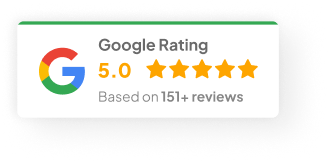29 Aug 25
Joomla or WordPress: Which One Will Help Your Online Store Perform Better?
The products don’t always make or break an online store. The platform does. A smooth site builds trust. A clunky one drives people away—and they don’t come back. 88% of shoppers never return after a bad user experience. That number alone should make anyone stop and think.
So the big choice early on is the CMS. WordPress or Joomla. Both work, but they serve slightly different types of businesses.
Why the Website Backbone Matters
A website is more than a digital shop window. It’s the shelves, the aisles, the checkout counter. When it’s slow or confusing, sales drop fast.
Google’s data is clear: 53% of people on mobile bail if a page takes more than 3 seconds to load. That’s half an audience gone before they even see a product.
Fast, clean, intuitive design isn’t optional anymore. It’s the backbone of online sales.
WordPress: The Big Player
WordPress runs 43% of all websites worldwide. It started out as a blogging tool. Now it’s running full-blown eCommerce stores. Add WooCommerce and it’s a serious competitor to any custom-built platform.
Things it does well:
- Dashboard is straightforward
- Huge library of themes and plugins
- WooCommerce handles products and checkout
- Good SEO tools built in
Why businesses like it:
- Easy to grow and scale
- Enormous community support
- Constant updates
- Flexible design options
Where it struggles:
- Can slow down if overloaded with plugins
- Needs regular maintenance
- Attracts security issues if ignored
Joomla: The Smaller but Flexible One
Joomla sits at 2.5% market share. Smaller, yes. But developers often rate it higher for complex builds.
Key strengths:
- Multilingual support out of the box
- Strong content management system
- Advanced user access controls
- Extensions available for eCommerce
Good for:
- Complex sites with layers of content
- Multi-author setups
- Businesses that need more built-in control
Challenges:
- Steep learning curve
- Not as many themes or add-ons
- Less friendly for small, first-time store owners
Picking the Right Fit
WordPress usually fits small to medium eCommerce stores. Easy, flexible, supported everywhere. Joomla makes sense when the project is complicated or when multiple contributors need different permissions.
Both can sell products. But WordPress usually wins when the priority is ease of use and scalability.
Security and WordPress
Security gets talked about a lot with WordPress. The truth: the platform itself is fine. The problems come from poor upkeep.
The basics that make all the difference:
- Update the system
- Stick to reliable hosting
- Use strong security plugins
Plenty of major companies run on WordPress with no issues. It’s all in how it’s managed.
Why Professional Design Still Matters
Even the best CMS won’t save a badly designed store. The platform gets you online, but design decides whether people buy.
What matters most here:
- User experience that feels natural
- Conversion-driven layouts
- Site speed
- Ongoing updates and support
This is where a professional web design team is worth it. Instead of patching problems later, the store launches ready to sell from day one.
Agencies like Chromatix focus on performance as much as appearance. The design isn’t just about looking modern—it’s about pulling customers through checkout and keeping them coming back.
Final Take
Both Joomla and WordPress can run an online store. WordPress usually edges ahead because it’s easier, flexible, and backed by a huge community.
But the platform is only the foundation. What really drives sales is how the site is designed, how fast it runs, and how well it’s maintained.
If the goal is a store that sells consistently, working with a team like Chromatix can save time, money, and a lot of headaches.


